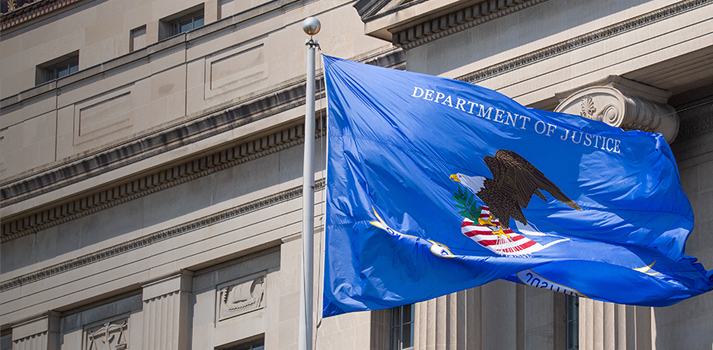- December 30, 2024
Former Federal Bureau of Prisons Employees Convicted

Office of Public Affairs | Press Release
A Federal Bureau of Prisons (FBOP) lieutenant was found guilty this past weekend of violating the civil rights of an inmate by showing deliberate indifference to the inmate’s serious medical needs. The lieutenant and a FBOP nurse were also found guilty of making false statements to a federal agent with the intent to obstruct the investigation into the inmate’s death.
According to court documents and evidence introduced at trial, Lieutenant Shronda Covington, 49, of Chesterfield, Virginia, and Registered Nurse Tonya Farley, 53, of Chesterfield, were on duty and working in their official capacities at the Federal Correctional Institution at Petersburg, Virginia, on Jan. 9, 2021. Covington willfully failed to ensure that the inmate, a 47-year-old man identified as W.W., was provided with necessary medical care, even though she knew that W.W. had a serious medical need, and Covington and Farley each made false statements to federal agents during the investigation into the inmate’s death.
Another FBOP official, Lieutenant Michael Anderson, previously pleaded guilty for his role in the inmate’s death and was sentenced to three years in custody.
“These defendants showed an appalling indifference and disregard for the victim’s life, and their failure to act caused his death,” said Assistant Attorney General Kristen Clarke of the Justice Department’s Civil Rights Division. “The Justice Department will continue to hold accountable those who work inside our prisons and jails, including our federal facilities, when they fail in their duty to provide basic care and humane treatment to the people held in their custody.”
“Federal inmates are human beings in a uniquely vulnerable environment,” said U.S. Attorney Jessica D. Aber for the Eastern District of Virginia. “Their care is the responsibility of corrections staff entrusted to uphold the highest standards of professional conduct. The defendants in this case failed to honor that trust, and the inmate died.”
“Covington’s inexcusable apathy to the medical needs of W.W. over the course of two days caused his unnecessary death,” said Special Agent in Charge Tim Edmiston of the Justice Department’s Office of the Inspector General Mid-Atlantic Region. “Covington and Farley also decided to lie about their involvement in order to escape accountability. The Justice Department Office of the Inspector General will continue to investigate civil rights violations at the hands of Federal Bureau of Prisons employees.”
Evidence presented at trial established that, in the early morning hours of Jan. 9, 2021, W.W.’s cellmate reported to facility staff that W.W. was exhibiting bizarre and unprecedented behavior, including that he was suddenly incontinent and unable to talk and walk normally. Over the course of two days, FBOP officials knew of but disregarded W.W.’s symptoms of a sudden neurological crisis, including his sudden incontinence, incomprehension, inability to talk and struggles to stand or walk without falling.
Without medical attention to address his sudden and serious medical need, W.W. fell into walls and other objects numerous times, causing significant bruising and bleeding to his head and body. Although FBOP policy requires staff to provide necessary medical care to inmates, Covington and Anderson ignored the policy and their training and failed to respond to repeated calls for help from inmates and line staff.
W.W. finally fell head-first into a wall and then to the floor in an observation cell, where — despite inmate-observers’ continued calls for help — he lay for an hour and 40 minutes before officers rendered aid. An autopsy concluded that W.W. died of blunt force trauma to his head and that the lack of medical assistance he received during his series of falls and after his last fall contributed to his death.
Covington and Farley will be sentenced on a later date. Covington faces a maximum penalty of 15 years in prison, and Farley faces a maximum penalty of five years in prison. A federal district court judge will determine any sentence based on the U.S. Sentencing Guidelines and other statutory factors.
The Justice Department’s Office of the Inspector General investigated the case.
Assistant U.S. Attorney Thomas A. Garnett for the Eastern District of Virginia and Special Litigation Counsel Kathryn E. Gilbert and Trial Attorney Katherine McCallister of the Civil Rights Division’s Criminal Section are prosecuting the case and were previously assisted by then-Trial Attorney Matthew Tannenbaum of the Justice Department’s Civil Rights Division.

